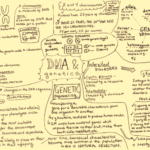The Examiner’s Role
Examiners for the Joint Council for Qualifications (JCQ) are tasked with an immense responsibility: fairly assessing the efforts of students across GCSE and A-Level subjects.
While their primary focus is on awarding marks to reflect learners’ knowledge and skills, there are recurring issues that repeatedly surface and cause undue frustration. Below, I outline some of the most common “pet peeves” of GCSE and A-Level examiners, providing practical tips and guidance to help students avoid these pitfalls.
Common Mistakes and Oversights by Students
One of the most frequently cited annoyances among examiners is the prevalence of careless mistakes and oversights.
These errors often reflect a lapse in focus or a lack of thorough revision. Some students fail to follow basic instructions, such as writing in black ink, filling in details correctly on the front page, or adhering to word limits. These lapses, though seemingly small, can have significant consequences, sometimes resulting in missed marks or even disqualification in extreme cases.
Additionally, careless spelling mistakes, grammatical errors and incorrect labelling of diagrams reveal that students might be under-prepared or rushing.
Examiners understand that nerves are high during exam periods, but consistent, preventable mistakes can suggest a lack of diligence. A major point of frustration is that these types of errors often mask genuine knowledge that students do possess but fail to demonstrate clearly.
Advice to the student
How to avoid these errors:
- Make a habit of carefully reading (and re-reading) all instructions before diving into the paper.
- Check your work for simple mistakes where possible, especially if you have a few spare minutes at the end of an exam.
- Pay close attention to detail can significantly improve not just accuracy but also how examiners perceive the quality of your answers.
Sloppy Exam Technique and How to Avoid It
Exam technique is just as important as subject knowledge.
Examiners routinely sigh over scripts that meander aimlessly, fail to address the question directly, or present haphazard, half-formed ideas. This problem can be magnified when students write answers in long, dense paragraphs without any clear structure or signposting.
Sloppiness might also show up in the way students fail to engage with the ‘command words’ in a question – such as “analyse”, “evaluate”, or “compare”. When instructions aren’t followed, examiners have no choice but to award lower marks.
Advice: Refining your technique:
- Start by breaking down each question into its core components. If the question asks you to “explain and evaluate”, be certain you allocate time to explaining the concept and then evaluating it thoroughly.
- Use paragraphs effectively, with each paragraph contributing a clear point or argument. By consciously structuring your responses, you make it far easier for examiners to follow and award marks in line with the mark scheme.
Lack of Exam Preparation and Revision Strategies
A lack of robust revision strategies is another bugbear for examiners, as it often results in incomplete or shallow answers.
When students rely solely on last-minute cramming or rely heavily on rote memorisation, their answers can appear disjointed, failing to demonstrate deeper understanding or the ability to apply concepts in different contexts.
It’s crucial to remember that every student’s learning style and pace differ. Some learners need repeated review sessions, while others may benefit from practical applications or group discussions. Examiners do not penalise students for having unique study methods; however, they do notice when students evidently haven’t prepared thoroughly.
Advice: Optimising your revision approach:
- Build a revision schedule that allows you to revisit topics multiple times.
- Incorporate active learning techniques, such as flashcards, past paperpractise, and self-quizzing.
- It’s not enough to just read over your notes; you need to test yourself and apply your knowledge in varied contexts.
- Remember to balance revision across all your subjects, ensuring no area is neglected.
Poor Time Management and Organisation
The glare of the clock during exam conditions can be intimidating, and poor time management is an issue that frequently crops up in examiners’ feedback.
Scripts often reveal rushed answers towards the end, where students have obviously run out of time. Alternatively, some students spend too much time on a single question, leaving little opportunity to tackle remaining questions with sufficient detail.
It’s also worth noting that time management extends beyond the exam room. Examiners often lament that many students appear to have spent more time panicking than properly planning their revision schedule.
Advice: Improving time management:
- Practise answering past exam questions under timed conditions.
- Develop an awareness of how long you typically spend on a question and then adjust accordingly.
- During the exam, plan your time before starting – make a quick mental note of how many minutes each question should take, relative to its marks.
- If you find one part of the paper more challenging, move on and return to it after addressing other questions you’re more confident about.
Misunderstanding of Mark Schemes and Assessment Criteria
Examiners commonly remark on the disconnect between what students write and what the mark scheme is designed to reward. Many students simply don’t realise how important it is to match their responses to the specific assessment objectives. They might craft answers that are interesting from a general knowledge perspective but fail to demonstrate the skills or knowledge areas that examiners need to see for high marks.
Similarly, examiners expect certain language or terminology to reflect a level of understanding appropriate to GCSE or A-Level standards. If a question relates to a scientific principle, for instance, the correct use of scientific vocabulary can make a real difference.
Advice: Bridging the gap:
- Familiarise yourself with past mark schemes and the relevant assessment objectives.
- This does not mean you should learn them by heart but rather develop an awareness of what examiners value.
- If the question is structured around evaluation, ensure that your answer includes an evaluation, not just a description.
- If the question seeks a critique of methods, remember to discuss advantages, limitations and possible improvements.
Ineffective Responses to Exam Questions
Another source of frustration for examiners is when students provide responses that don’t fully answer the question set. This might involve going off on tangents, reproducing memorised essays, or failing to connect ideas to the question’s core theme. Examiners might read paragraphs of background information only to find that the student has never truly addressed the task at hand.
In some cases, students misread the question entirely and produce answers that, while factually correct on another topic, garner few marks because they are irrelevant. Examiners often note how disheartening it is to see good writing wasted on an answer that simply misses the point.
Advice: Staying focused:
- Take a moment to carefully read the entire question – and read it again!
- Underline key words to ensure you understand exactly what is being asked.
- As you plan your response, keep looping back to the question to check that you’re still on track.
- If you find yourself drifting into unnecessary detail, refocus on the key command word or phrase (such as “contrast” or “discuss”) and align your next paragraph with what the question requires.
Tips and Strategies for Excelling on Exams
To leave examiners with a positive impression and to maximise your potential, consider the following strategies:
1. Plan Your Answers: Even a brief outline helps structure your points logically. It also ensures you don’t forget to include important ideas in the rush of writing.
2. Practise Under Real Conditions: Using past papers and timing yourself simulates exam pressure, allowing you to develop both knowledge recall and the ability to apply exam techniques.
3. Familiarise Yourself with Command Words: Terms like “explain”, “evaluate”, “compare”, and “justify” carry distinct meanings. Tailor your approach accordingly.
4. Review Past Mark Schemes: Look for patterns in how examiners award marks. Pay special attention to the difference between lower and higher mark band responses.
5. Write Clearly and Concisely: Indecipherable handwriting, waffle, and repetition all hinder an examiner’s ability to locate the merits of your answer. Aim for clarity and directness.
6. Seek Targeted Feedback: If possible, ask teachers or tutors to mark your practise answers. Constructive criticism can highlight areas you need to improve and strengths you can build upon.
7. Look After Yourself: Exam stress can be overwhelming. Getting sufficient sleep, staying hydrated, and taking short revision breaks all contribute to better focus and performance on the day.
Final Thoughts
Examiners are not out to catch students out; they genuinely want to reward pupils who demonstrate knowledge, understanding and good exam technique.
By being aware of these common “pet peeves” and proactive about addressing them, students can gain a real edge in their GCSE and A-Level exams. From carefully reading the question to managing your time effectively, it’s often the seemingly simple steps that lead to the biggest improvements.
As someone who has supported countless students, I’ve seen how a combination of purposeful revision strategies, targeted exam practise and a firm grasp of the mark scheme can transform a learner’s performance. Equally, I’ve seen what happens when students lose sight of the basics and allow small mistakes to accumulate.
By focusing on clarity, accuracy and structure, you’ll not only avoid the irritations that frustrate examiners but also unlock the grades that truly reflect your capabilities.
Above all, remember that success in exams isn’t about tricks or shortcuts – it’s about consistent preparation, calm focus, and the determination to showcase what you’ve learnt.
Armed with these insights, students can approach their GCSEs and A-Levels with greater confidence and a clear strategy for impressing the examiners who hold the key to their future academic achievements.








 See More Genuine Reviews
See More Genuine Reviews